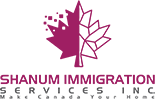Sponsorship Appeal Process in Canada
What is the Sponsorship Appeal Process in Canada
So you have submitted a Sponsorship application for your spouse or common-law partner, or other family members. A few months later you receive the information that the Sponsorship Application has been refused.
However, that always doesn’t mean the end of the world. There are options to appeal a review of the decision where you get to explain the reasons why your application should be accepted. Keep reading to learn more about how to process a Sponsorship Appeal.
Where to Start the Sponsorship Appeal
When someone applies for family sponsorship or conjugal sponsorship, the application is handled by IRCC (Immigration, Refugee and Citizenship Canada. It is the department of the Government of Canada with responsibility for matters dealing with immigration to Canada, refugees, and Canadian citizenship. Sometimes, for various reasons, IRCC might deny a sponsorship application.
In that case, the applicant may be eligible to appeal the decision. If eligible to appeal, then they submit the appeal to the Immigration Appeal Division (IAD). The Immigration Appeal Division is a department of the Immigration and Refugee Board in Canada (IRB).
Who can appeal
A permanent resident or Canadian citizen who has submitted an application to sponsor their family member to immigrate to Canada and got rejected by IRCC can appeal to the IAD.
Therefore, the person who intends to be the sponsor is the one who can appeal.
Who cannot appeal
The eligibility of the appeal depends on the reasons for rejection by IRCC. To elaborate, when IRCC rejects a sponsorship application they will indicate why the application was rejected.
The main reasons could be any of the following:
- Marriage of convenience
- Genuineness of relationship
- Inadmissibility- Refusal based on inadmissibility can not be appealed to IAD.
If the person you wanted to sponsor was marked as inadmissible due to the following reasons, you can not appeal the decision. The reasons are:
The person you want to sponsor, was
- involved in serious criminality, meaning they have been punished in Canada and were imprisoned for six months or more
- convicted of an offense outside Canada which would be a cognizable offense in Canada and would be punishable by imprisonment of at least ten years, or
- involved in an act outside Canada, which would be punishable in Canada by a maximum term of imprisonment of at least ten years.
- Involved in organized crime
- rejected on security grounds
- involved in violations of human or international rights, or
- misrepresented (unless the person you sponsored is your spouse, common-law partner, or child)
When to Start a Sponsorship Appeal
Once you receive the refusal letter from IRCC, you have 30 days from that day to appeal to the IAD.
How to Start an Appeal
Initially, you have to gather these two documents
- Notice of Appeal form
- The IRCC refusal letter
After completing the Notice of Appeal form, you have to send these two documents to IAD to officially start the appeal process.
Before you get an appeal hearing date from IAD, there are some events that will occur.
Appeal Record
Usually, IAD (the Immigration Appeal Division) will request the Appeal Record from the minister. This Appeal Record contains all the related information to your sponsorship application. The Minister is supposed to send the Record within 120 from the date IAD makes the request.
Request for Information
An IAD officer may contact you or your counsel (representative) for additional information regarding the appeal. This helps them to determine whether your appeal can be resolved without a hearing. They can ask for the information before or after they request the appeal record.
Alternative Dispute Resolution (ADR)
In some cases, the IAD might suggest an Alternative Dispute Resolution (ADR). An ADR is an informal meeting between you, the Minister’s Counsel, and an IAD officer to discuss your case. In this meeting, they try to resolve the case by drawing a mutual decision. If ADR goes successfully, then there will be no need for a hearing.
Importance of ADR and Record Request
It is very crucial that the information requested by IAD be met in a timely manner. And if they request Alternative Dispute Resolution, it is extremely important that you attend the ADR. Otherwise, your appeal will be considered ‘abandoned’, which means your appeal is not going to be considered anymore.
After all of these, if the appeal can not be resolved with mutual decision and agreement, an oral hearing will be scheduled and you will receive the invitation to attend that hearing.
Scheduling Your Hearing
You can represent yourself in your appeal. However, these are not simple procedures and require legal research therefore, it is recommended to hire the services of an Immigration professional.
Your Immigration Consultant will be directly in contact with the Immigration Appeal division and will submit the required documents in a timely manner.
If you have counsel representing your case, the Immigration Appeal Division (IAD) will contact them to schedule your hearing. You will receive a Notice to Appear at least 30 days before the hearing date. The Notice to Appear contains the date and time of your hearing.
If you don’t have a counsel
If you do not have a counsel representing your case, the Immigration Appeal Division (IAD) will contact you by sending a Notice to Appear for a scheduling conference. At the conference, an IAD officer will explain the hearing procedure and schedule a date for your hearing by consulting you.
How to Prepare for the Hearing
Throughout the process, you will receive ample instructions to make you familiar with the hearing process by Immigration Appeal Division. Apart from that, it will be your responsibility to gather and submit all the necessary documents, witness information, and request for interpretation needs. All these should be submitted at least 20 days before the hearing takes place.
.For example, if the sponsorship of your spouse or partner was refused because the officer believed your marriage or common-law or conjugal relationship is not genuine, you will have to gather evidence to prove the authenticity of your relationship. To do so, you have to establish the following points:
- How you and your spouse or partner have met.
- How your relationship had developed.
- If you are married, how the marriage had happened
- Whether your family members know about your relationship
- How long have you lived together
- The legal validity of your marriage
Your friends and family members can be witnesses in your appeal. It will be your responsibility to provide the names of witnesses to IAD.
It is extremely important to attend the hearing. Failure to attend the hearing will result in the abandonment of your appeal.
If Your Appeal is Approved
Once your appeal is accepted, Immigration, Refugees and Citizenship Canada (IRCC) will overturn the decision of refusing your application. They will then resume the permanent residency application. At this point, your appeal is completed and closed. The Immigration Appeal Division (IAD) will not be involved in it anymore. From this point forward, you will contact IRCC to check your application status.
If Your Appeal is Rejected
If unfortunately your appeal gets rejected, then the initial decision by IRCC to refuse the permanent resident visa remains the same. IAD will close your appeal process here. At this point, you can seek legal advice if you wish to attempt it further.
Appealing to the Federal Court
If your appeal to IAD was rejected but you are not satisfied with the hearing, then your Minister’s Counsel or you can apply to the Federal Court of Canada for Judicial review of the Immigration Appeal Division’s decision. If eligible and accepted, the Federal Court of Canada will return the case to the IAD for re-hearing.
Going through the sponsorship and appeal process can certainly be emotionally and mentally draining. The presence and guidance of an expert representative can increase the likelihood of a successful appeal.
Our experienced and licensed Immigration Consultants can help you overcome the stress and confusion and help you prepare for a successful appeal.
We will be happy to help you in preparing your appeal in a professional manner supported by legal research. We have extensive experience in appeals to the Refugee Appeal Division and Immigration Appeal Division.
If you need help and guidance, don’t hesitate to contact us. For an Assessment of your profile use this Assessment Form or book an appointment for consultation


Add Comment